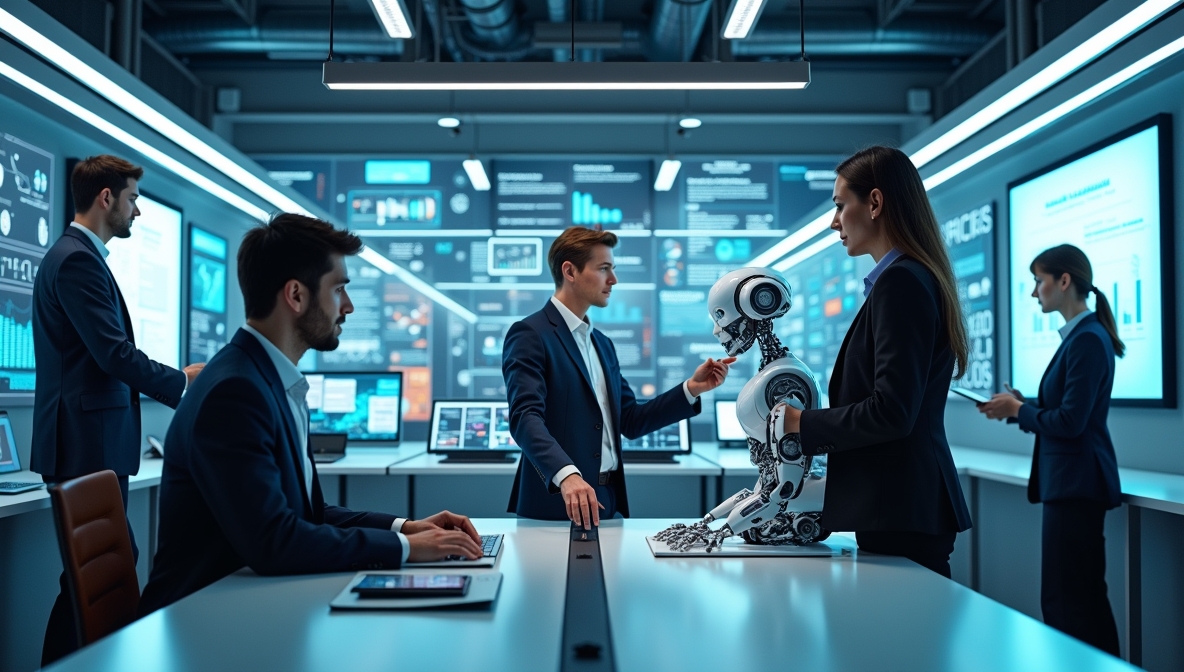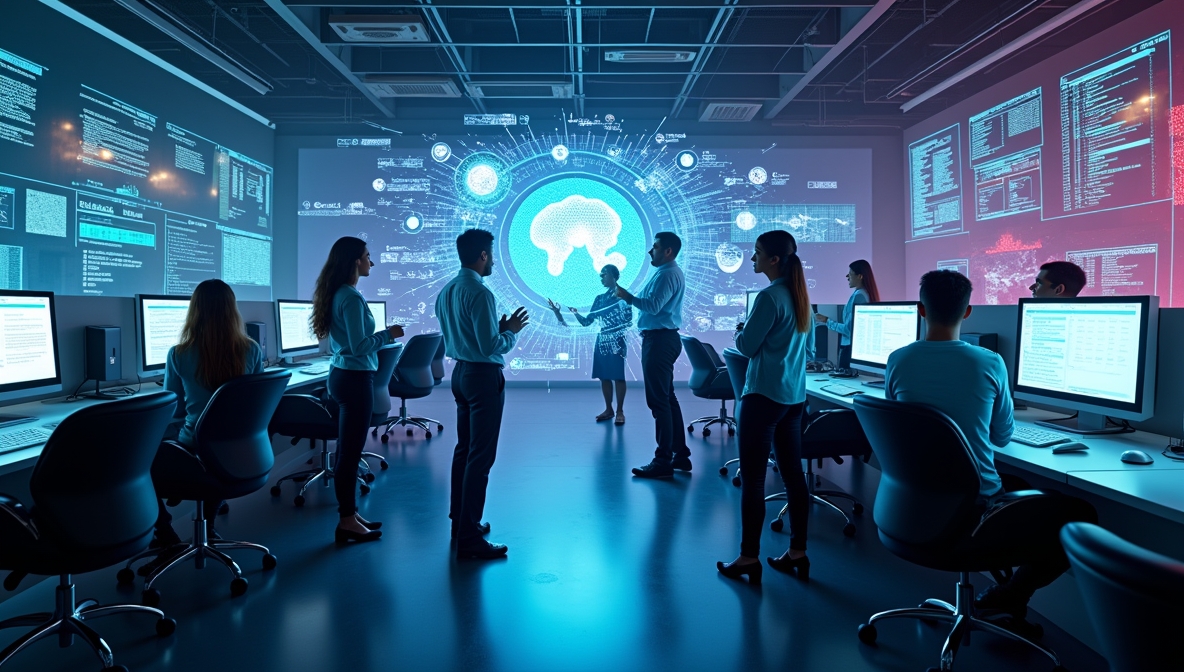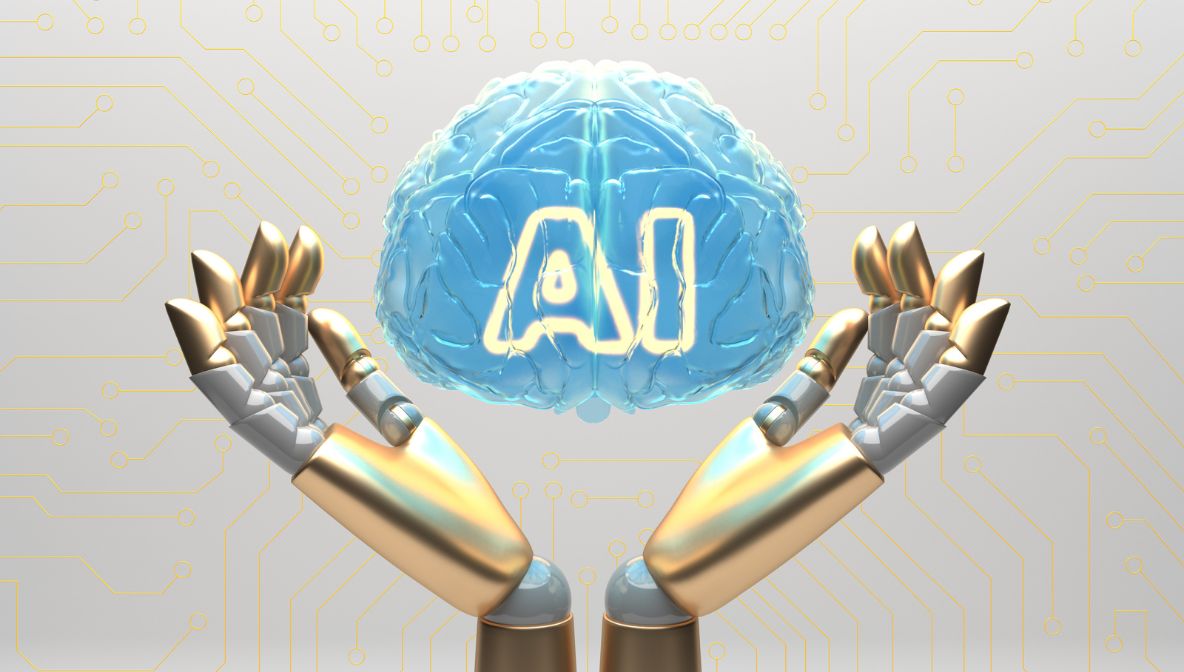As technology continues to evolve, one of the most significant advancements in the business world is the integration of AI and Automation. These technologies are helping companies reduce manual tasks, increase productivity, and improve decision-making processes. From data processing to customer service, AI and Automation are streamlining various operations, making them more efficient and cost-effective.
Key Points:
- AI and Automation are transforming industries.
- Business efficiency is drastically improved with AI.
- AI is playing a crucial role in the future of business operations.
What Is AI and Automation?
AI and Automation are technologies that work together to enhance business processes and operations. AI refers to systems or machines designed to simulate human intelligence to perform tasks such as data analysis, decision-making, and pattern recognition. Automation, on the other hand, involves using machines or software to carry out repetitive tasks without human intervention.
How Artificial Intelligence and Automation Are Integrated in Business
Artificial Intelligence and Automation are integrated in business to improve operational efficiency, reduce human error, and streamline workflows. By combining AI’s ability to process vast amounts of data with Automation’s capability to carry out repetitive tasks, companies can free up employees to focus on more strategic activities.
Example: Many businesses use chatbots (AI) to handle customer queries, while automating order processing tasks, reducing the time employees spend on menial tasks.
Note: Automation helps to reduce the risk of human error.
How Does AI and Automation Impact Business Efficiency?
The impact of Artificial Intelligence and Automation on business efficiency is profound. By automating routine tasks, AI-driven technologies improve the speed and accuracy of business processes. These technologies help businesses save time, reduce costs, and focus on more important strategic initiatives.
Examples of AI and Automation Enhancing Efficiency
- Data Analysis: AI-powered tools can analyze large datasets, uncover trends, and provide actionable insights without human intervention, enabling faster decision-making.
- Customer Service: AI chatbots and virtual assistants can handle customer queries 24/7, offering quick solutions while freeing human agents for more complex issues.
- Manufacturing: In industries like automotive and electronics, automation systems help improve production lines, reduce labor costs, and improve product quality.
Note: Incorporating AI in business can provide a significant competitive edge.
The Role of AI and Automation in Customer Experience (H2)
AI and Automation have a huge influence on customer experience. From chatbots answering customer queries to personalized recommendations based on previous interactions, these technologies enable businesses to provide a more seamless, efficient, and personalized experience for their customers.
AI-Driven Personalization
AI can analyze customers’ preferences and behaviors to deliver personalized content or offers. For example, Netflix uses AI to recommend movies or TV shows based on your viewing history, enhancing the overall user experience.
Table: AI in Customer Experience
| Technology | Function | Example |
|---|---|---|
| Chatbots | Customer Support | AI-powered chatbots provide 24/7 support, reducing wait times for customers. |
| Personalized Recommendations | Enhance User Engagement | Personalized shopping recommendations improve customer satisfaction. |
How Can AI and Automation Improve Decision Making?
Artificial Intelligence and Automation can significantly improve decision-making by providing businesses with accurate data and predictions. AI algorithms can analyze past behaviors and current trends to offer insights and forecasts, helping businesses make informed, data-driven decisions.
Data-Driven Decision-Making
AI and Automation give business leaders access to real-time data, ensuring that they have the most current information at their fingertips when making decisions. This leads to more accurate, timely, and strategic decisions that can positively impact a company’s bottom line.
Comparison Chart: AI vs. Human Decision Making
| Aspect | AI Decision Making | Human Decision Making |
|---|---|---|
| Speed | Instant data processing | Time-consuming |
| Accuracy | Highly accurate | Prone to biases |
| Scalability | Scalable for large data | Limited by experience |
Conclusion
AI and Automation have a massive potential to reshape how businesses operate. By reducing manual processes, improving decision-making, and enhancing customer experiences, these technologies are playing an essential role in driving efficiency and innovation. As we look towards 2025, Artificial Intelligence and Automation will continue to transform industries, providing businesses with powerful tools to stay competitive in a rapidly changing world.
FAQ’s
1. What is AI and Automation in business?
AI and Automation refer to technologies that enable businesses to automate repetitive tasks, improve decision-making, and enhance operational efficiency.
2. How does AI improve customer service?
AI improves customer service by using chatbots and virtual assistants to respond to customer inquiries and provide 24/7 support, ensuring faster and more accurate responses.
3. How does AI enhance decision-making?
AI enhances decision-making by providing real-time data and predictive insights, helping business leaders make more informed, data-driven decisions.
4. What industries are benefiting from AI and Automation?
Industries such as healthcare, manufacturing, retail, and finance are all leveraging AI and Automation to improve efficiency, reduce costs, and enhance customer experiences.
5. Can small businesses benefit from AI and Automation?
Yes, small businesses can use AI and Automation to streamline operations, reduce costs, and improve customer service, providing them with a competitive edge.




